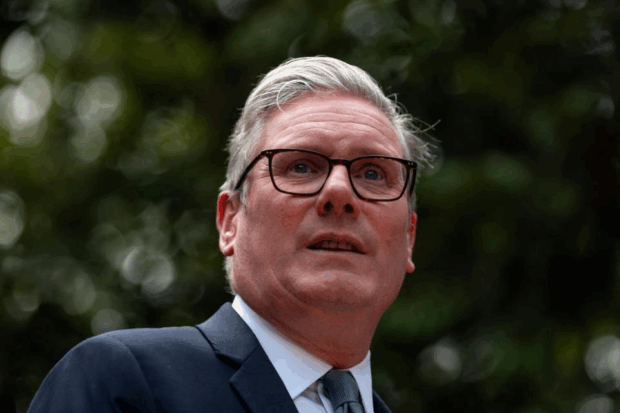
Prime Minister Sir Keir Starmer will present a comprehensive industrial strategy on Monday, positioning skills training as the foundation for economic recovery and reduced dependence on foreign labor.
The decade-long “national renewal” plan allocates £275 million toward training British workers for growth industry positions that currently require imported labor. The initiative targets specific sectors, including defense, engineering, digital technology, and construction.
Business Secretary Jonathan Reynolds stated the strategy “will help transform our skills system to end the overreliance on foreign labor and ensure British workers can secure good, well-paid jobs in the industries of tomorrow and drive growth and investment right across the country.”
The industrial strategy launch will precede a new trade plan later this week designed to establish the UK as the world’s most business-connected nation.
Economic pressures have intensified following recent data showing the economy contracted 0.3% in April, representing the largest monthly decline in gross domestic product over eighteen months. Businesses cite challenges from global uncertainty related to Donald Trump’s tariffs and domestic pressures from increased national insurance contributions.
Current workforce statistics reveal concerning trends, with approximately one in seven young people neither in education nor employment. Apprenticeship participation has declined nearly 20% between 2016/17 and 2023/24.
Government projections suggest the identified growth sectors could generate 1.1 million new jobs by 2035.
The skills investment package includes capital funding from a £200 million allocation supporting new facilities, notably “technical excellence colleges” providing specialized training aligned with local industry needs. The program aims to train thousands of additional workers by 2029, including computer programmers, IT technicians, and electrical and civil engineers.
Education Secretary Bridget Phillipson emphasized the strategic importance of skills development, stating, “Skills rightly run right through the heart of this industrial strategy because they are key to breaking the link between background and success for young people and delivering prosperity for our country.”
Industry representatives have responded positively to the announcement. Stephen Phipson, chief executive of manufacturers’ organization Make UK, welcomed the skills focus, noting, “We look forward to working with the government to fix the skills gap in manufacturing, which has been the sector’s Achilles’ heel for decades.”
Additional strategy components are expected to address energy cost reductions for industries competing with overseas rivals facing lower utility bills. The plan also includes a £380 million investment across various projects intended to double private investment in creative industries.
Political opposition has emerged regarding implementation consistency. Shadow Business Secretary Andrew Griffith acknowledged the skills investment value but criticized what he termed contradictory policies. He argued the government is “stepping on the accelerator and the brake at the same time” through simultaneous national insurance increases and additional employment rights that could raise business costs.
“This inherent contradiction cannot make for a feasible or serious strategy, and will hold the government to account for it,” Griffith stated.
The industrial strategy represents the government’s response to economic challenges while attempting to address structural workforce issues through domestic talent development rather than continued reliance on international recruitment.


















Be the first to leave a comment